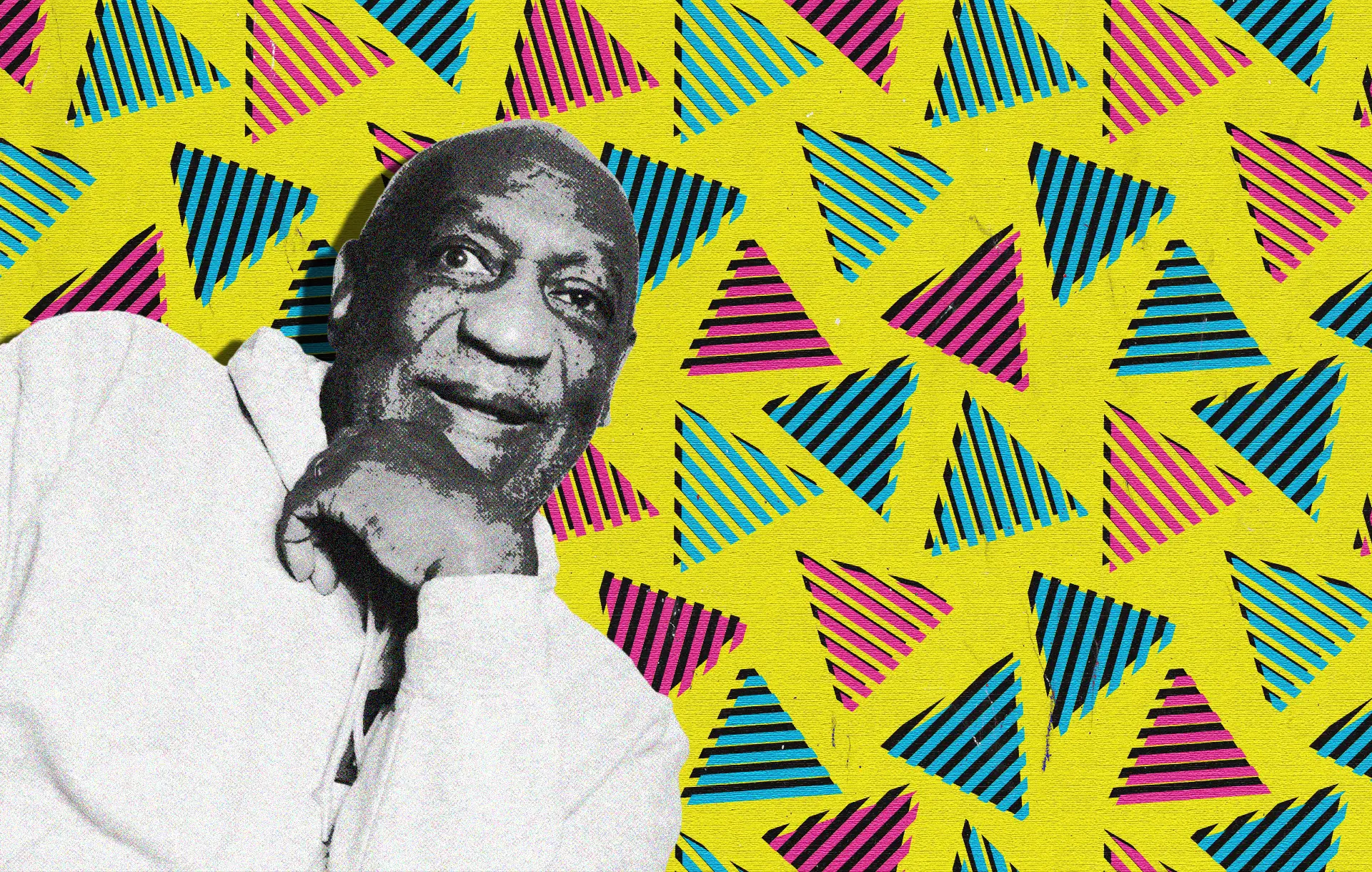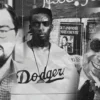We Need to Talk About Cosby, comedian and TV host W. Kamau Bell’s new four-part documentary series about the rise and fall of Bill Cosby, debuted at the Sundance Film Festival in late January before landing on Showtime a few days later.
This very fine series is not only a fair and complete examination of Cosby but has a chance to set a new template for how to tell the stories of the most significant #MeToo offenders ― one that acknowledges their career achievements while also enumerating their crimes.
In the four-hour film, Bell does the following: He tells the full story of Bill Cosby’s career, never ignoring or downplaying that Cosby was a major figure of consequence in the histories of comedy, television, and overall popular culture and that his career was uncommonly long, lasting for about five decades. It also doesn’t ignore, for that matter, that Cosby did plenty of good, from pushing for the desegregation of the stuntman profession to paying for numerous people to go to college.
He tells the full story of Bill Cosby’s career, never ignoring or downplaying that Cosby was a major figure of consequence
But at the same time, Bell is very clear about telling the story of Cosby’s many terrible misdeeds, giving his accusers their say, and ― this is key ― making it clear just how devastating it was for someone of his stature to turn out to have been accused of such terrible things.
I’ve heard the series described as “well-balanced,” which I suppose is a fair description, although that doesn’t mean it’s agnostic about Cosby’s guilt; it’s hard to imagine anyone watching this and not concluding that the man was a full-on sexual predator.
(Cosby has been accused of sexual assault by around 60 women, and while he was convicted of aggravated indecent assault in 2018 and imprisoned for three years, that conviction was thrown out last year, and Cosby was freed. For that reason, Bell’s documentary uses the word “alleged” in referring to Cosby’s acts.)
A New Template
No, this isn’t going to work in every single case. I don’t need to see a documentary about how great Harvey Weinstein’s movie-producing career was, or highlights of Matt Lauer’s best news moments, or an ode to Jeffrey Epstein’s financial genius. Another Sundance documentary, Phoenix Rising, dealt with actress Evan Rachel Wood and her abuse by Marilyn Manson; that film didn’t need to take an hour to spell out the genius of Manson’s music and public persona (mostly because there wasn’t any).
But for Cosby, this was the right way to do it, and it’s something that could be replicated in other similar projects. As someone about to work on a writing project that’s going to necessitate writing a chapter about Woody Allen, the documentary gave me some ideas.
I don’t need to see a documentary about how great Harvey Weinstein’s movie-producing career was, or highlights of Matt Lauer’s best news moments
It’s best to do this, though, with some distance. After the accusations emerged against Cosby in a serious way, The Cosby Show was dropped from its syndication deal, and consideration of Cosby’s comedy career went largely onto the back burner. This was defensible, but enough time has passed that it now makes sense to take the long view of Cosby’s life.
We Need to Talk About Cosby is four hours long; I watched all four episodes in a single day. It’s debuting on Showtime one episode a week, but on-demand viewers can watch the entire series now.
I’ve noticed before that, with the exception of an old special I wrote about a couple of years ago, Bill Cosby’s visage didn’t appear on my TV screen for a good five years, outside of the context of a perp walk or trial. Bell’s documentary changes that and even demonstrates for us why Cosby was an important performer over the course of five decades.
Different episodes deal with different aspects of Cosby’s career. The first looks at his early comedy career, while the second at his first TV shows and his further rise. The third is mostly about The Cosby Show and its major influence, while the fourth is about the comedian’s downfall and eventual arrest and imprisonment. But the accusers are heard from throughout, and not only at the end as if to hammer home the point that Cosby was almost certainly abusing women all along.
There are not-so-well-known tales told about Cosby’s show business career, especially the story in which he insisted on Black stuntmen on his show I, Spy; prior to then, stuntmen had actually worn blackface in doubling for Black performers.
Hannibal vs. Bill
When we get to the accusations, we of course see the famous stand-up routine by Hannibal Buress in 2014, in which he declared “you rape women, Bill Cosby!,” leading to sudden media attention, more accusers coming forward, and eventually Cosby’s arrest. That night, at Philadelphia’s Trocadero venue, was almost certainly the most historically significant stand-up comedy performance of the current century. (Buress, presumably having concluded he’s already said everything there is to say about this, is not a participant in the documentary.)
But it’s notable just how long the accusations festered before that. As early as 1997, Cosby was extorted by a woman who claimed that he was her father, although Cosby admitted to an affair with her mother. Philadelphia Magazine’s “Dr. Huxtable and Mr. Hyde” story detailed lawsuits, as well as the accusation of Andrea Constand, which is the charge on which Cosby was ultimately convicted. That was in 2006, eight years before the Buress performance. Yet despite all that, journalist Mark Whitaker wrote a major biography of Cosby in 2014, in which he made no mention of any sexual assault allegations or accusations.
That festering, the documentary explores, coincided with another phase of Cosby’s life: When he began making frequent speeches about the behavior of young Black men, from crime to wearing their pants too low ― which earned Cosby some new fans among the ranks of Republican politicians and Fox News hosts.
One moment in the documentary, post-Buress, has a reporter interviewing Cosby and his wife Camille about something else, and briefly asking about the accusations, and we see Cosby trying to bigfoot the reporter into leaving that question out of the interview. Sure, it’s far from the worst thing Cosby is accused of doing, but it’s still spectacularly chilling.
Bell chooses his talking heads well, using expertise from a variety of experts on television and comedy, including my colleague Mike Dennis. But the most powerful commentators are those who detail their assaults in sometimes graphic detail.
Truthers vs. Bell
The doc has kind of caught it from all sides, including the sizable contingent of truthers who believe that Cosby is innocent. It’s notable that fans/piglets of Barstool’s Dave Portnoy, himself accused of abusing women, are responding with most of the same ugly, conspiratorial and misogynistic talking points that Cosby’s stans have long used.
The doc deals with some of the conspiracy theories, including the especially ludicrous one that Cosby’s downfall was orchestrated because of his attempts to buy NBC. Cosby’s efforts to purchase the network, though, were in the early 1990s, long before the accusations surfaced. Cosby is not a billionaire and has never had the capital necessary to buy a TV network, and if GE didn’t want to sell the network to him, they could have just turned him down; an elaborate smear campaign involving 60 women would have been unnecessary.
Others seem to think the series is a project meant to glorify Cosby:
The documentary ends with Bell and the crew getting the news that Cosby was being let out of prison. Yes, it’s terrible that Cosby’s conviction was thrown out. But the fact is, he’s 83 years old and almost certain to live out his remaining days as a permanent pariah who won’t ever work in showbiz again.
If We Need to Talk About Cosby emerges as the defining take on Bill Cosby’s life, career, and downfall, I can live with that.




